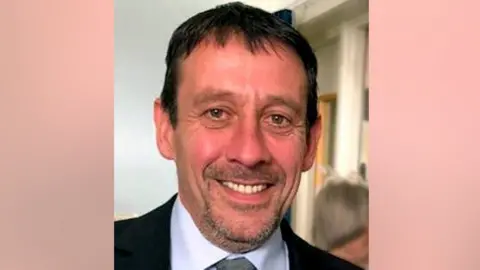Murder accused felt 'humiliated' by brother-in-law
 Facebook
FacebookA man on trial for murder has claimed his problems began when his brother-in-law - his alleged victim - attacked him.
The High Court in Edinburgh heard that Finlay MacDonald said he was humiliated and left with low self esteem after John MacKinnon assaulted him in 2013.
Mr MacDonald is alleged to have shot father-of-six Mr MacKinnon, 47, at his home on Skye on 10 August 2022.
On the same day, he is accused of attempting to murder three other people, including his wife. Mr MacDonald denies all the charges and has lodged a special defence to the murder allegation, claiming he was suffering from abnormality of mind.
The court heard that Mr MacDonald told a psychiatrist that Mr MacKinnon assaulted him, and said his father had to intervene.
The court heard he told Dr Suraj Shenoy: "That was the start of all of this.
"Something happened in my mind that day.
"The beginning of all my problems was John MacKinnon attacking me in 2013."
The psychiatrist said Mr MacDonald told him that he tried to avoid any contact with Mr MacKinnon.
Dr Shenoy concluded Mr MacDonald was affected by autism spectrum disorder and post traumatic stress disorder at the time of the alleged murder.
He said in the background were depression with anxiety and paranoid and dependent personality disorder.
 PA Media
PA MediaMr MacDonald, 41, denies murdering distillery worker Mr MacKinnon at his home at Teangue by firing a shotgun at him.
He also denies attempting to murder his wife Rowena MacDonald, 34, at her home in Tarskavaig by struggling with her and repeatedly stabbing her with a knife.
He has further denied attempting to murder retired osteopath John MacKenzie and his wife Fay, both 65, at their home in Dornie, Wester Ross, by firing a gun at them.
Rowena MacDonald gave evidence earlier in the trial, telling the jury her husband had attacked her in front of their children, leaving her drenched in blood, as he suspected she was having an affair.
Defence counsel Donald Findlay KC questioned her about a number of text messages she had exchanged with her boss, asking how many she would say were "flirty".
Mrs McDonald said a "handful", later saying: "We were friends - are you not friends with anyone you work with?"
Mr Findlay had put it to Mrs MacDonald that if a boss sent those kind of messages to employees, he could be up for sexual harassment.
On Tuesday, the court heard that Mr MacDonald told Dr Sujay: "I depended on my ex-wife to make all the decisions at home, but she let me down."
Defending, Mr Findlay said: "The triggering event seems to have been his wife's betrayal as he saw it."
The psychiatrist said: "As he saw it."
The trial before judge Lady Drummond continues.
